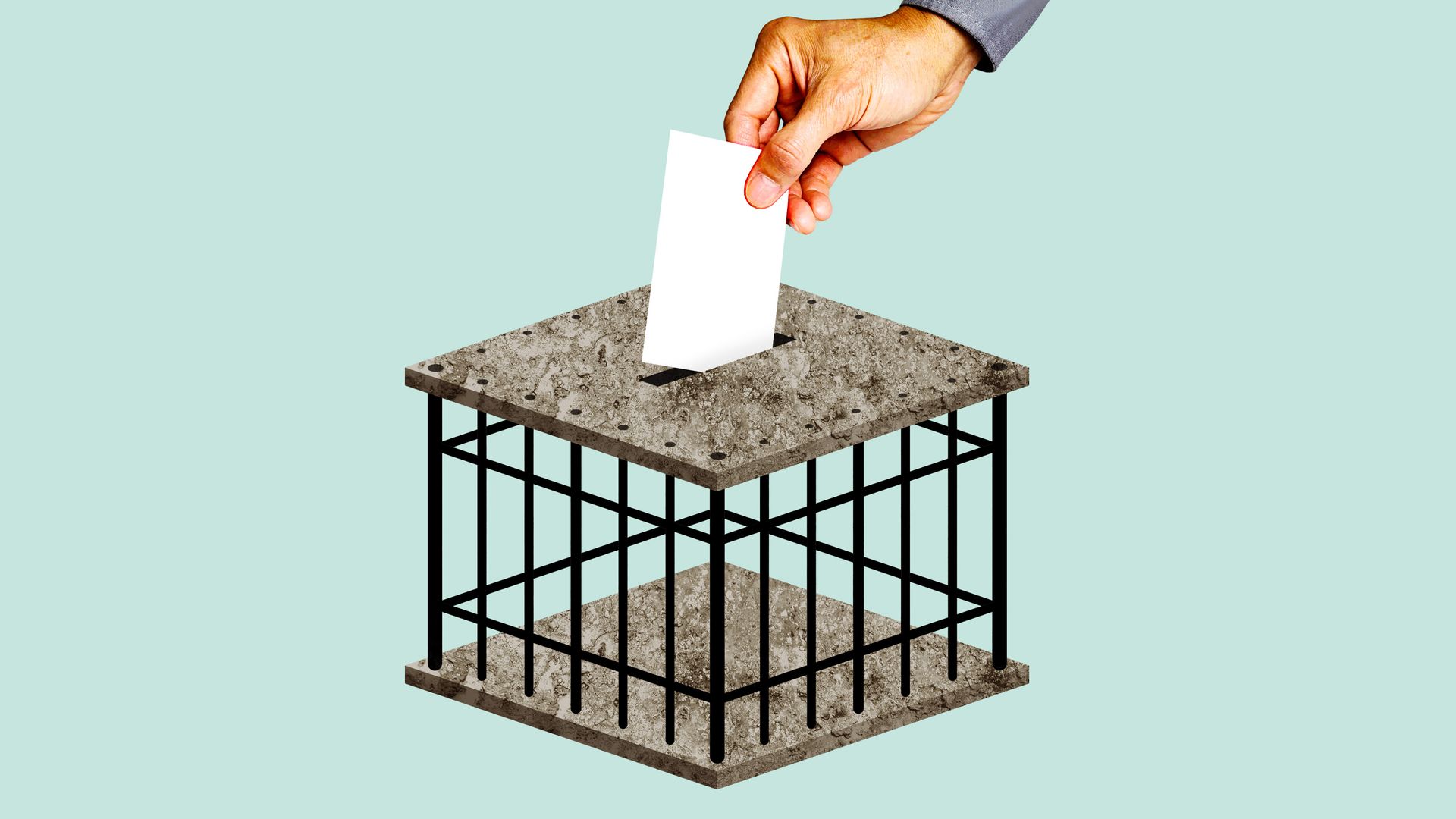
Illustration: Lazaro Gamio/Axios
Multiple states have started to rethink voting rights for convicted felons, but the steps toward restoring that privilege aren't always clear.
Driving the news: Florida's Supreme Court ruled Thursday that felons must complete "all terms of their sentence" before regaining their right to vote, including financial obligations such as fines, fees or restitution. The ruling comes after a yearlong battle between lawmakers and advocates over whether discharging financial penalties should be required before the right to vote was restored.
Where it stands: With the exception of Maine and Vermont, every state in the country has in some way limited felons' right to vote. Regaining their voice often requires a mix of completing a prison sentence, parole, probation and payment.
The catch: Even with shifting statutes, the laws remain nuanced, debated and often difficult to navigate. State election officials often cannot easily answer the question: “When can a felon in your state vote again?”
The odds: For former felons seeking to cast their votes, the lack of clear answers is problematic. In some states, the laws are in flux. In others, they were knotty from the start.
- In Alabama, a Montgomery Advertiser report noted in March that felons don't always learn of changes to their voting rights. After new laws narrowed the list of crimes requiring disenfranchisement, many felons regained their ability to vote in 2018. But now organizers say large numbers are unaware of a shift in the law or what they need to do to become eligible to vote.
- An Arizona report from KTAR News noted similar patterns of felons failing to be notified when they're eligible to vote again, as did a Louisiana report from the Daily Advertiser.
- In North Carolina, the News and Observer reported that 460 allegations of felons voting while on probation or post-release supervision — prohibited in the state — have been referred to prosecutors since 2015. Many who were prosecuted said they didn't understand they were barred from voting.
- In Florida, the law changed in 2018 to allow felons to regain voting rights after completing "all terms of their sentence." But a court has determined that "all terms" includes monetary obligations. Some felons already had registered to vote and cast ballots in local elections thinking "all terms" meant only prison, parole and probation.
What they’re saying: The Campaign Legal Center says it has seen similar issues while building Restore Your Vote, a website that provides information and updates on voting rights by state.
"Across the country, there are more than 23 million Americans with felony convictions — only about 5 million to 6 million do not have the right to vote under law, but many others do not vote because the laws in their state are complicated so they believe they can't. We built Restore Your Vote to provide an online resource to ameliorate this problem, but it really should be the responsibility of the states to make sure their citizens understand their fundamental right to participate."— CLC's Blair Bowie told Axios
Go deeper
